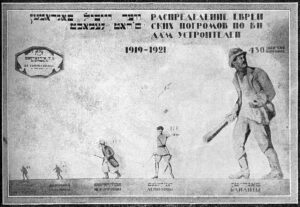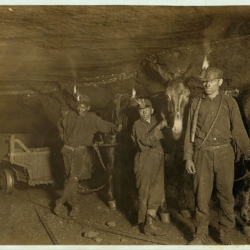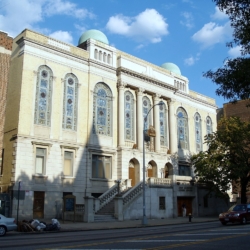| Contribute a translation | Source (English) |
|---|---|
O Lord our God, we turn to Thee in hope as did our fathers. May Thy mercy descend upon our people in all their habitations. Extend Thy protection and help unto our brothers who struggle in lands of darkness as victims of oppression and persecution. | |
Fill the hearts of all men with a love of freedom and justice, that tyranny may vanish and the reign of righteousness be established everywhere on earth. | |
Uphold also the hands of our brothers who toil to rebuild Ẓion. In their pilgrimage among the nations, Thy people have always turned in love to the land where Israel was born, where our prophets taught their imperishable message of justice and brotherhood and where our psalmists sang their deathless songs of love for Thee and of Thy love for us and all humanity. | |
Ever enshrined in the hearts of Israel was the hope that Ẓion might be restored, not for their own pride or vainglory, but as a living witness to the truth of Thy word which shall lead the nations to the reign of peace. | |
Grant us strength that with Thy help we may bring a new light to shine upon Ẓion. | |
Imbue us who live in lands of freedom with a sense of Israel’s spiritual unity that we may share joyously in the work of redemption so that from Ẓion shall go forth the law and the word of God from Jerusalem. |
This is an untitled prayer offered in the Evening Service for the Sabbath from the Union Prayer Book (Newly Revised) (CCAR 1924), pp. 68-69, as a reading between the Shema and the Amidah. As a prayer for protection it fits as a paraliturgical haskivenu, and in New York City, it makes sense in the context of the terrifying news of mass-murder, rape, and genocide being reported from Ukraine at the time. (Find Nokhem Shtif’s “פּאָגראָמען אין אוקראַיִנע : די צײַט פֿון דער פֿרײַװיליקער אַרמײ (The Pogroms in Ukraine: the Period of the Volunteer Army)” (1923) offered in Yiddish and in English translation at In Geveb.) The Ukrainian context of this prayer is further underscored in that the prayer is not found in the 1918 “revised” edition of the Union Prayer Book, but in the later 1924 “newly revised” edition.
The prayer is further remarkable as an early expression of Religious Zionism within American Reform Judaism. This prayer was later adapted into a prayer for Israel “Land of Hope and Promise” found in the 1975 Gates of Prayer (CCAR), and as the “Prayer for Israel” in the 1984 JWB prayerbook for Jewish US military personnel. –Aharon Varady
Source(s)


“A Prayer for Protection from Oppression and Persecution (CCAR 1924)” is shared through the Open Siddur Project with a Creative Commons Public Domain Dedication 1.0 Universal license.










Leave a Reply